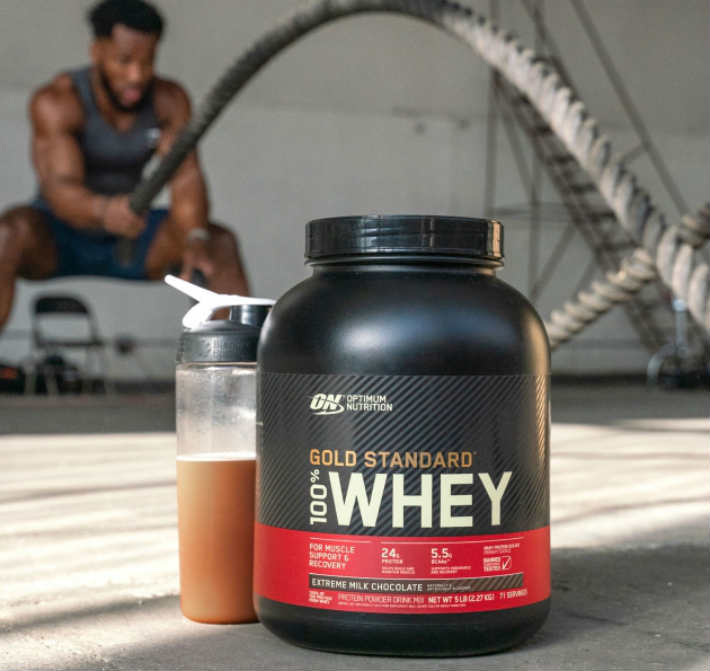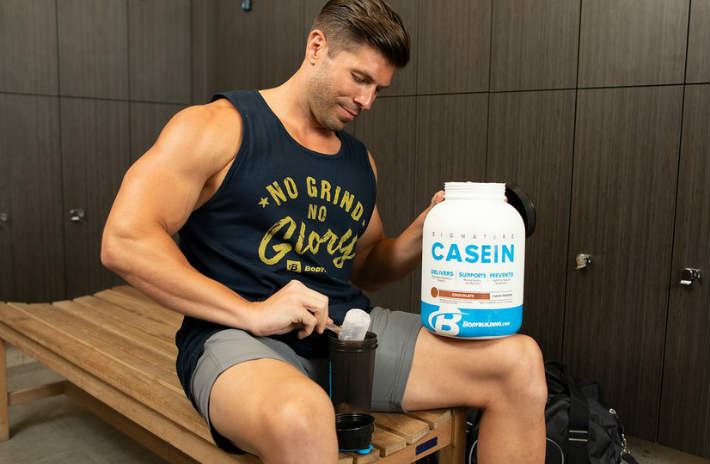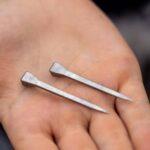Proteins are the building blocks of the body – they help the body to repair existing cells and make new ones. They are even more important if you are looking to build muscle, lose weight or just improve your fitness level. How do protein supplements help build muscle and lose weight, you may ask? When digested, protein is broken down into assorted amino acids that help build and repair muscle. Protein also assists in weight loss by ensuring the body burns fat and not muscle.
According to experts, about 3 to 4 grams of protein is needed for each kilo of body weight. Since getting the needed amount of it through food is hard for most people, protein supplements can provide that extra boost that helps you meet your fitness goals. Quick and convenient, simply mix the powder with water and you are good to go.
However, this simple way to get your protein daily intake can get complicated when you consider the number of protein supplements you can choose from. If you are a beginner, consider your fitness goals before buying as every protein powder works in a different way. Also, always check the fat content, calories per serving and carbohydrate count. Read below for more information on what protein is best for weight loss and muscle building and when is the best time to take it.

Whey
A water-soluble milk protein that is quite popular, and for a great reason. It is an inexpensive, complete protein that contains all the nine amino acids the body needs. It’s digested and absorbed faster than other proteins, and the quick delivery of amino acids to the muscle cells helps speed up muscle growth. Whey protein can also boost fat burning and its appetite suppressant qualities boost weight loss. If your goal is to build muscle at a steady pace, or you have just started with cardio exercises, whey may be a good protein for you. It’s best consumed either immediately before or after working out.
Whey Isolate
This is a different form of whey protein – it has a different amount of protein, lactose and fat. Whey protein powder contains anywhere from 11 to 14,5% protein while whey isolate contains over 90% protein. Due to its high protein concentration, whey isolate is one of the easiest proteins for the body to break down and use. It’s recommended for those engaged in intense exercise or muscle build-up. Take it directly before or after workouts to speed up muscle recovery. It is also a good option for fitness enthusiasts who are lactose sensitive.
Whey Hydrolysate
This is a pre-digested type of whey protein and also the most expensive form of protein on the market. In order to create hydrolysate, the amino acids generally found in concentrates and isolates are broken down into single amino acids, which improves muscle growth and recovery. It also has significant effects on insulin and satiety, making it a great choice for anyone looking to reduce body fat. For best results, take it after weight training.

Casein
A balance between protein synthesis and breakdown is essential for muscle growth. While whey provides a quick infusion of amino acids to your body and stimulates protein synthesis, casein is a “slow” protein that takes about 3-4 hours to reach peak protein synthesis and up to 7 hours to be totally absorbed by the body. This means it leaves you satiated for longer. When taken at the right time, which is before going to bed, casein can help build muscle quickly and efficiently by providing the bloodstream with a slow and steady flow of amino acids.
Just like protein supplements need to be combined with resistance training to promote muscle growth, increasing your protein intake won’t help you lose any weight if it’s not combined with regular exercising. Drinking diet soda won’t help you much either. In fact, you should always opt for healthy alternatives to diet sodas if you really want to shred some kilos. To lose weight, you need to burn more calories than you consume.
And although a higher protein intake allows you to eat fewer calories without feeling that hungry, remember that it still contains calories that contribute to your daily total. Simply said, taking too much of it can actually cause you to gain weight. So, make sure you count your calories for optimal results.
Sleeping well is also fundamental to weight loss and muscle building. So, if you are having trouble sleeping, improving your sleep environment may help. Not getting the right amount of sleep can determine how much fat is lost as well as how much muscle mass you retain while on a calory restricted diet. By providing the amino acids that your muscles need to repair and rebuild during sleep, you could make gains while you snooze.



